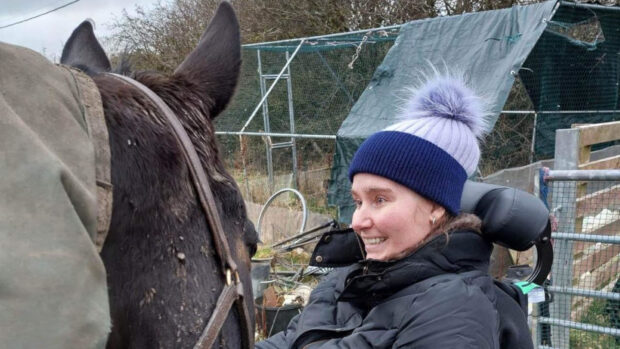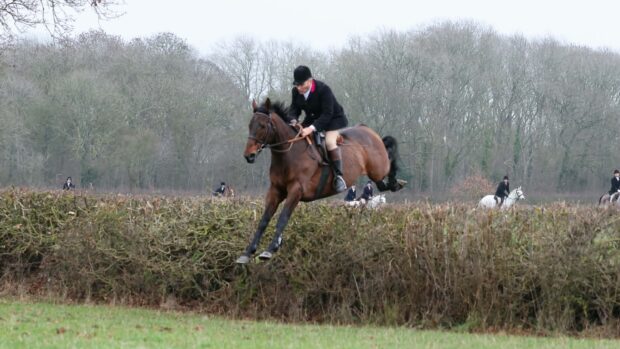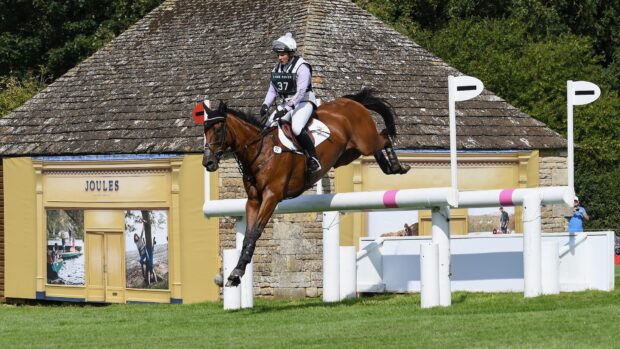The time has come to retire the term “retired” when discussing thoroughbreds’ second careers after racing.
The suggestion came during the first of the two-part International Forum for the Aftercare of Racehorses (IFAR) 2022 conference on 5 April, as part of a discussion by leading industry figures on life after racing for thoroughbreds worldwide.
Horse welfare and social licence were the constant underpinning themes, with a focus on what action is working and what can be improved.
The main points were communication, education and creating opportunities for horses leaving racing.
“Communication is absolutely key, whatever you’re doing. Whichever country you are, you must talk about what you are doing, so the general public begins to accept and realise that racing does care about its horses when their racing days are over,” said Retraining of Racehorses chief executive Di Arbuthnot.
British Horseracing Authority chairman Annamarie Phelps warned that if the industry “stumbles” on aftercare, it will undermine public confidence regardless of how well the sport conducts itself in other ways.
“Aftercare is not the sole responsibility of the regulators, rather it is everyone’s responsibility and I think it requires a fundamental shift in the way we [as an industry] conduct our affairs,” she said.
She added that every horse should be afforded the opportunity of a safe retirement and successful transition into a second career, that every owner should be planning for that “from the day they breed or purchase” and everyone who benefits from a horse’s breeding and racing activities “must contribute” to aftercare.
“It is clear to us in the industry that the love and admiration we have for our horses is natural. The proposition that our industry is uncaring is genuinely harmful and hurtful. But we must codify our good practices and be accountable for living up to those ideals,” she said, adding that racing “must not shy away from ethical debates”.
“Having empathy with our critics is a really important mindset. We must recognise that we share a common goal in enhancing horse welfare outcomes. As we lean into that discussion, we have to start with a positive affirmation of the use of horses in sport and leisure, as we believe the benefits to horses and society outweigh the risks.”
She added that finding meaningful second careers and homes “is not easy, but when horses have jobs, they are cared for”.
“Racing must help to create the job opportunities for our horses – whether that be in the arena, as a therapy horse or as a much-loved companion,” she said.
“Often emotions speak louder than evidence. This has never been more true than in today’s hyper-connected world. A world that is not afraid to challenge authority and constantly looks for moral justification.”
Horseback UK, which uses horsemanship to help inspire recovery and positive change in those it helps – which includes military veterans – has six former racehorses among its herd.
Founder Jock Hutchison said thoroughbreds’ sensitivity, intelligence and the way people they help can see their own journeys mirrored in the retraining, make former racehorses an asset to the charity and those it supports.
“The journey [the horse] has taken is the same as the people we serve,” said Jock. “They had a team, they had a job and all of a sudden, they had to give that up and had to re-establish themselves.”
Other points raised included the impact that perceptions of racing can have on racehorses’ future lives.
“One of the things we need to look at is how we talk about these horses that are retiring,” said Meredith Flash, lead researcher of the Australian Thoroughbred Wellbeing Project. “The view that they are ‘damaged goods’ that ‘need rescuing’ diminishes their opportunities in their post-racing careers.”
Kentucky-based equine vet Jeff Berk spoke about when euthanasia is an appropriate consideration.
“Euthanasia is an extreme option. The need can potentially be minimised by recognising subtle, performance-limiting issues at the track before they become chronic and irreversible. This requires education of all the stakeholders – trainers, owners and veterinarians alike,” said Dr Berk.
“Prevention is always the best approach and in this case, prevention is in the form of education. Owners are responsible for providing for the health and welfare of the horse they own as long as they own him, and trainers are similarly responsible for overseeing the health and welfare of the horses they are training. However, both owners and trainers are responsible for transferring any given horse that’s been retired from racing in a condition that will maximise the horse’s ability to have a second career.”
- What do you think about retiring the term “retired”? Send your thoughts to hhletters@futurenet.com, including your name, nearest town and country, and you could win a bottle of Champagne Taittinger
You might also be interested in:

*Opinion* Love for the horse is our most powerful asset – we need to use it more

Subscribe to Horse & Hound magazine today – and enjoy unlimited website access all year round

‘My absolute rock’: award for retrained racehorse who helped owner through cancer

‘Thoroughbreds are 1,000 times easier than warmbloods!’: trainer Dan Skelton on the merits of rehoming ex-racehorses as we celebrate National Racehorse Week

All in a day’s work: former Royal Marines Commando and Horseback UK founder *H&H Plus*
Horseback UK’s Jock Hutchison on using horsemanship to help people at their lowest ebb regain self-esteem – and why dogs
Horse & Hound magazine, out every Thursday, is packed with all the latest news and reports, as well as interviews, specials, nostalgia, vet and training advice. Find how you can enjoy the magazine delivered to your door every week, plus options to upgrade your subscription to access our online service that brings you breaking news and reports as well as other benefits.




